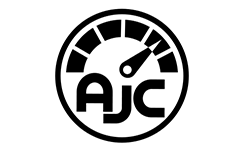Recycling SLA Batteries
Sealed lead acid batteries have been around for nearly 160 years. They are an inexpensive and reliable source of power typically used in motorcycles, ATVs, boats, mobility devices, backup power systems and more. With proper care and maintenance, they last for years, but eventually they stop taking a charge and won’t provide the needed power.
When you get a new SLA battery installed, what do you do with the old one? In many states in the United States it is illegal to throw it in the trash. A spent lead acid battery, regardless of whether it is a regular SLA battery, an AGM (absorbed glass mat) or Gel cell, is considered hazardous waste.
The battery can be recycled. It will be taken apart, and its components can be re-used in new batteries, or neutralized and put back into the environment.

The Recycling Process
The first step is to remove the acid from the batteries. Then the batteries are broken into small bits in a hammer mill. The broken pieces are dumped into large vats of water. There, the plastic rises to the surface and the lead and other metals sink to the bottom.
Now that the parts are separated, they each go through a different recycling process. The plastic used for battery cases is typically polypropylene. That is melted down, put through an extruder, and turned into uniformly sized pellets. The pellets can then be sold to other manufacturers, although typically they will be sold to battery case manufacturers to be reused in manufacturing new batteries.
The lead in the battery is infinitely recyclable. That means it can be used over and over without loss of performance. The lead parts are cleaned and melted together in smelting furnaces. The molten lead is poured into molds to create either 2000 lb ingots called hogs, or 65 lb ingots called pigs. Any impurities in the lead rise to the surface and are scraped off before the lead cools. Once cool, the ingots are removed from the molds and sent to battery manufacturers where they are made into new lead plates and other parts for new batteries.
The acid goes through one of two different processes. The sulfuric acid can be neutralized with a compound similar to baking soda which turns the acid into water. That water is then treated, cleaned and tested to be sure it meets clean water standards, then released into the public sewer system. Or, it can be processed and turned into sodium sulfate, a white powder that is used in laundry detergent, or glass or textile manufacturing.
Some battery manufacturers who also recycle, can reclaim the spent acid, remove the impurities from it, and convert it into new electrolyte to use in new batteries, keeping it entirely out of the environment.
Benefits of Recycling SLA Batteries
SLA batteries have been recycled for 100 years. The number one benefit of recycling SLA batteries is that the toxic materials, lead and sulfuric acid, are kept out of landfills, which also keeps them from contaminating drinking water and surrounding land.
As noted above, lead is infinitely recyclable. Reusing the lead saves the energy that would be expended mining new lead ore. Reusing the plastic by melting it down and making new battery cases out of it saves the energy required to create new polypropylene, which is a petroleum byproduct, and also keeps it out of landfills where it would take 20 to 30 years to degrade.
SLA batteries are the most recycled item in the United States. The EPA notes that the rate of recycling is nearly perfect, at 99%, compared to 63% for newspaper and 55% for aluminum cans. This is attributed to the industry investment in state of the art closed loop collection and recycling system. More than 130 million SLA batteries are recycled every year. This makes SLA batteries a sustainable industry that is very environmentally friendly. In addition, because of the closed loop of battery manufacture and recycling, the cost of SLA batteries is lower than other types of batteries.
Where can I Recycle My SLA Battery
Just about any place that sells SLA batteries will accept old ones for recycling. Many big box stores will also accept them.
All of the BatteryClerk global websites have details on where to send your batteries. Oklahoma City in the United States, Ottawa in Canada, and The Netherlands for the EU will all accept used batteries. Check our recycling pages for more details.
